Search Results for: Vertebrates
Skip to resultsCan’t find what you’re looking for? Visit our FAQ page.
1,543 results for: Vertebrates
-
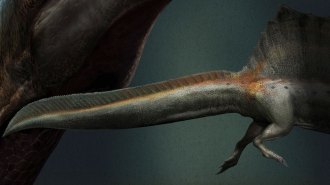 Paleontology
PaleontologySpinosaurus fossil tail suggests dinosaurs were swimmers after all
Unique among known dinosaurs, Spinosaurus had a finlike tail, which the predator may have used to propel itself through the water.
-
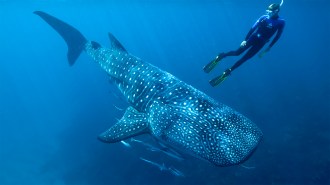 Animals
AnimalsCold War nuclear test residue offers a clue to whale sharks’ ages
One unexpected legacy of the Cold War: Chemical traces of atomic bomb tests are helping scientists figure out whale shark ages.
-
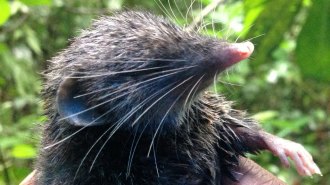 Animals
AnimalsHere’s why a hero shrew has the sturdiest spine of any mammal
The hero shrew’s rigid backbone is among the weirdest mammal spines, its incredible strength aided by fortified vertebrae bones.
By Jake Buehler -
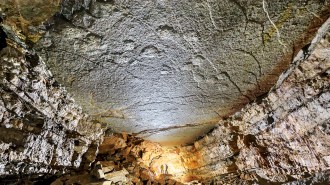 Paleontology
PaleontologyDeep caves are a rich source of dinosaur prints for this paleontologist
Several deep caves in France are proving to be a surprising source of dinosaur tracks.
-
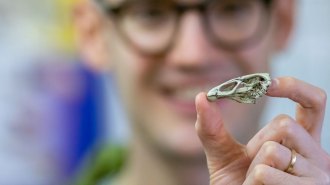 Paleontology
Paleontology‘Wonderchicken’ is the earliest known modern bird at nearly 67 million years old
A new fossil find, dubbed the Wonderchicken, is a common ancestor of modern ducks and chickens.
-
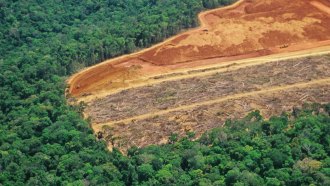 Life
LifeHow much space does nature need? 30 percent of the planet may not be enough
Nations are drafting a plan to protect 30 percent of Earth by 2030 to save biodiversity. The number reflects politics more than scientific consensus.
-
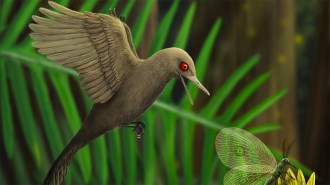 Paleontology
PaleontologyThis ancient dinosaur was no bigger than a hummingbird
The skull of one of these Mesozoic Era birds — the tiniest yet known — was discovered encased in a chunk of amber originally found in Myanmar.
-
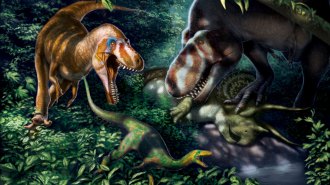 Paleontology
PaleontologySmall ‘cousins’ of T. rex may actually have been growing teenagers
Fossil analyses suggest that Nanotyrannus wasn’t a diminutive relative of the more famous behemoth Tyrannosaurus rex.
By Sid Perkins -
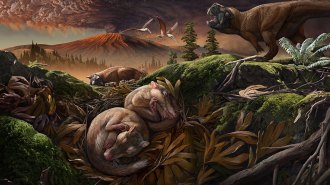 Life
LifeAn ancient critter may shed light on when mammals’ middle ear evolved
Rare skeletons are helping to pin down the evolution of mammals’ three middle ear bones, known popularly as the hammer, anvil and stirrup.
-
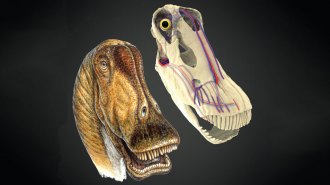 Paleontology
PaleontologyBig dinosaurs kept cool thanks to blood vessel clusters in their heads
Giant dinosaurs evolved several strategies for cooling their blood and avoiding heatstroke.
-
 Earth
Earth50 years ago, an Antarctic fossil pointed to Gondwanaland’s existence
Fifty years ago, fossils from Antarctica helped seal the deal that the southern continents were once connected in one, giant landmass called Gondwanaland.
-
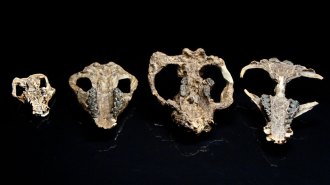 Life
LifeRemarkable fossils capture mammals’ recovery after the dino-killing asteroid
A fossil-rich site in Colorado is revealing how mammals rebounded and flourished after an asteroid strike 66 million years ago.